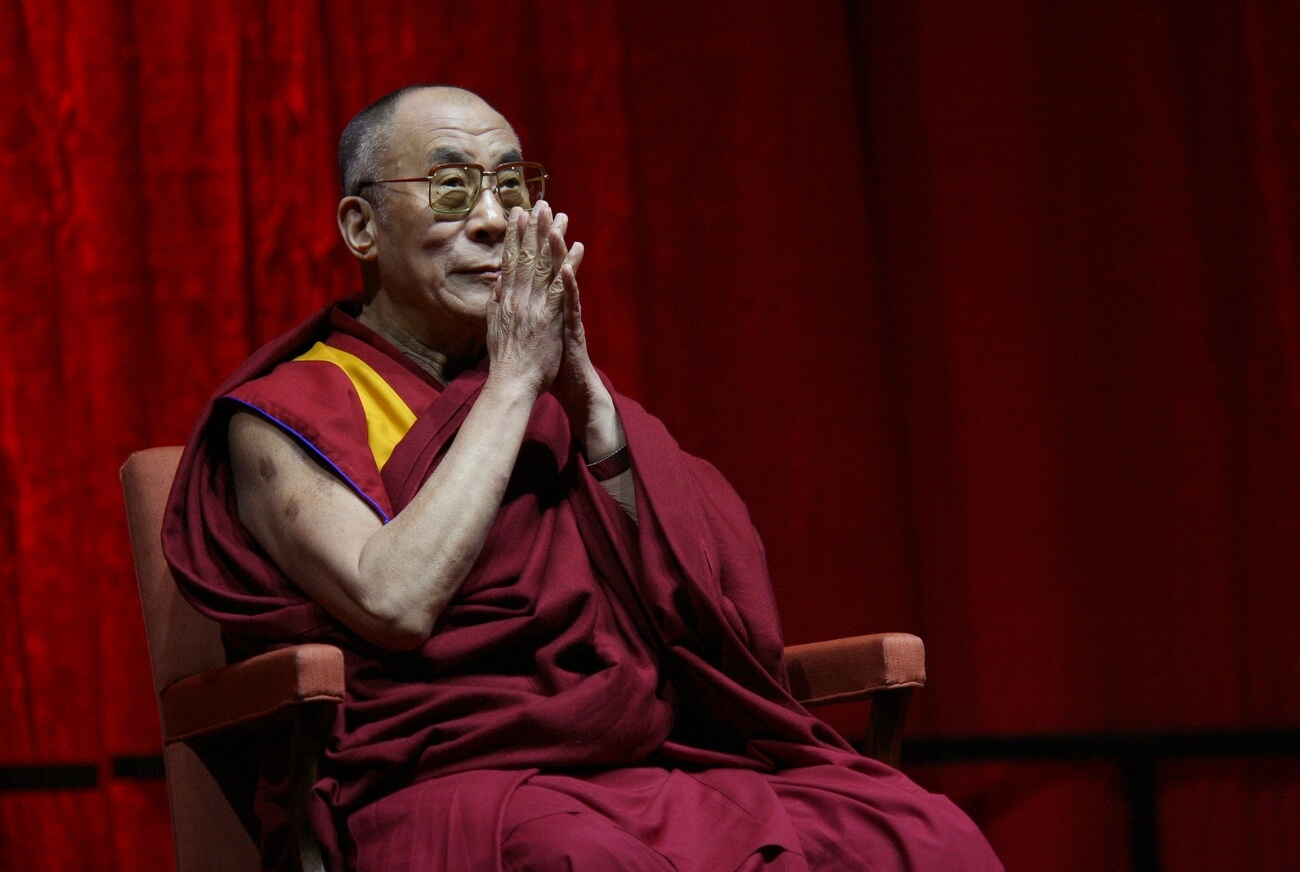The Dalai Lama recently marked his 90th birthday by praying for peace as Beijing insisted it would have the final say on who succeeds the Tibetan spiritual leader. Interestingly, the Chinese embassy in India appears to be happy with the Modi government but not with Indian critics.
Beijing criticizes the Nobel Peace Prize winner, the Dalai Lama, who has led a lifelong campaign for greater autonomy for Tibet. Tibetans in exile worry that Beijing will name the successor of the Dalai Lama to bolster control over the territory it invaded in 1950 and has ruled ever since.
The celebrations on Sunday are the culmination of days of long-life prayers for Tenzin Gyatso, who followers believe is the 14th reincarnation of the Dalai Lama, a man whose moral teachings and idiosyncratic humour have made him one of the world’s most popular religious leaders.
“While it is important to work for material development, it is vital to focus on achieving peace of mind through cultivating a good heart and by being compassionate, not just toward near and dear ones, but toward everyone,” he said in his birthday message.
“Through this, you will contribute to making the world a better place.”
The celebrations also included his key announcement that, after being inundated with messages of support from fellow Tibetans both inside and in exile, the spiritual institution will continue after his death.
He said he had received appeals from followers from across the Himalayan region, Mongolia, and parts of Russia and China.
The seemingly esoteric matters of reincarnation have real-world political consequences, with Tibetans fearing his death will mark a major setback in his push for more autonomy for the Himalayan region.
The Dalai Lama said his India-based office alone would “exclusively” identify that successor — prompting a swift and sharp reply from China that the reincarnation “must be approved by the central government” in Beijing.
China said the succession would be carried out “by drawing lots from a golden urn”, foreign ministry spokeswoman Mao Ning told reporters on Wednesday. That urn is held by Beijing, and the Dalai Lama has warned that, when used dishonestly, it lacks “any spiritual quality”.
US Secretary of State Marco Rubio also said in a statement that Washington was “committed to promoting respect for the human rights and fundamental freedoms of Tibetans”.
Messages of support were also given by former US presidents Bill Clinton and George W. Bush, as well as Barack Obama, who said the Dalai Lama had shown what it means to “speak up for freedom and dignity”.
The current Dalai Lama, himself identified in 1937, has said that if there is a successor, it will come from the “free world” outside China’s control.
Despite the Indian government remaining tight-lipped and keeping a low profile, many in India backed the Dalai Lama and supported the Tibetan cause. But China appears to be unhappy and has ‘warned’ the Indian academic community.

In a tweet (now X), Yu Ling, the Spokesperson of the Chinese Embassy in India, wrote:
It has been noted that some people from strategic and academic communities, including former officials, have made some improper remarks on the reincarnation of the Dalai Lama, contrary to the Indian government’s public stance.
🔹As professionals in foreign affairs, they should be fully cognizant of the sensitivity of issues related to Xizang, and that the reincarnation and succession of the Dalai Lama is inherently an internal affair of China, brooking no interference of any external forces.
🔹Indian government has made political commitments to China. It recognizes that Xizang Autonomous Region is part of the territory of the People’s Republic of China and India does not allow Tibetans to engage in political activities against China in India.
🔹Chinese government attaches great importance to the protection and development of ethnic minority cultures. In Xizang, Tibetan people continued to freely maintain their traditional culture, such as traditional attire, food culture, and architectural styles, etc..
🔹In reality, Xizang-related issue is a thorn in China-India relations and has become a burden for India. Playing the “Xizang card” will definitely end up shooting oneself in the foot.
For reference, Xizang is the modern Chinese name for Tibet, specifically referring to the Tibet Autonomous Region of China.
With inputs from AFP




